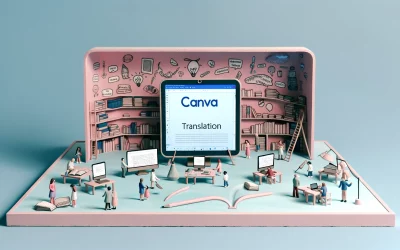ChatGPT is an advanced language model developed by OpenAI that can assist job seekers in simplifying and enhancing their job application process. With its ability to understand natural language and generate human-like responses, ChatGPT can provide valuable assistance in crafting cover letters and resumes, preparing for interviews, and writing follow-up emails. By leveraging ChatGPT prompts, job seekers can save time and improve their chances of landing their dream job.
One of the key benefits of using ChatGPT prompts for job applications is the ability to receive personalized responses based on the specific job seeker’s needs. For example, a job seeker can ask ChatGPT to “suggest improvements to my job search strategy” or “provide resume bullet points that showcase metrics and impact for a role as a [job title].” ChatGPT will then respond with a collection of relevant prompts that can help the job seeker improve their job search strategy or tailor their resume to a specific job opening.
Another advantage of using ChatGPT prompts for job applications is the ability to receive real-time feedback. Unlike traditional job search methods, which can take weeks or even months to yield results, ChatGPT can provide instant feedback on a job seeker’s resume or cover letter. This can be especially helpful for job seekers who are looking to make quick adjustments to their application materials in response to feedback from potential employers.
Understanding the Role of ChatGPT in Job Applications
ChatGPT is a powerful AI tool that can be used to generate content for job applications. It can help job seekers to craft compelling cover letters, resumes, and even prepare for interviews. By using ChatGPT, job seekers can save time and effort while ensuring that their application documents are tailored to the job requirements.
Benefits of Using ChatGPT
One of the main benefits of using ChatGPT in job applications is that it can help job seekers to stand out from the crowd. ChatGPT can generate unique and creative content that can catch the attention of recruiters. It can also help job seekers to highlight their skills and experience in a way that is relevant to the job requirements.
Another benefit of using ChatGPT is that it can help job seekers to save time and effort. Writing a cover letter or resume can be a time-consuming process, especially if the job seeker is not familiar with the job requirements. By using ChatGPT, job seekers can generate content quickly and easily, without having to spend hours researching and writing.
ChatGPT vs Traditional Writing Methods
While traditional writing methods can be effective, they can also be time-consuming and require a lot of effort. ChatGPT, on the other hand, can generate content quickly and easily, without requiring much effort on the part of the job seeker. Additionally, ChatGPT can generate content that is unique and creative, which can help job seekers to stand out from the crowd.
However, it is important to note that ChatGPT is not a replacement for traditional writing methods. While ChatGPT can generate content quickly and easily, it is still important for job seekers to review and edit the content generated by ChatGPT. This will ensure that the content is accurate, relevant, and tailored to the job requirements.
Crafting Your Resume with ChatGPT
Crafting a resume that stands out from the rest can be a daunting task, especially when you’re competing with hundreds of other applicants. Fortunately, ChatGPT can help you create an engaging and ATS-friendly resume that highlights your skills and experience.
Tailoring Your Experience
One of the best ways to make your resume stand out is to tailor it to the specific job you’re applying for. With ChatGPT, you can use prompts like “Optimize my resume for [Job Title] by highlighting my most relevant experiences and skills” to create a customized resume that speaks directly to the job requirements.
ChatGPT can also help you identify the most important keywords and phrases to include in your resume. By using prompts like “What are the most important skills and experiences for [Job Title]?” you can ensure that your resume includes all the key information that recruiters are looking for.
Highlighting Key Achievements
Another important aspect of crafting a winning resume is highlighting your key achievements and accomplishments. With ChatGPT, you can use prompts like “Provide resume bullet points that showcase metrics and impact for a role as a [Job Title]” to create a resume that emphasizes your successes.
ChatGPT can also help you identify the most impressive metrics to include in your resume. By using prompts like “What are the most impressive metrics for [Job Title]?” you can ensure that your resume includes quantifiable results that demonstrate your value to potential employers.
Personalizing Cover Letters
When it comes to job applications, personalization is key. By personalizing cover letters, candidates can show employers that they have taken the time to research the company and the job position, and that they are genuinely interested in the opportunity. Here are some tips on how to personalize cover letters using ChatGPT prompts.
Engaging Introductions
The introduction of a cover letter is the perfect opportunity to grab the employer’s attention. By using ChatGPT prompts, candidates can come up with engaging and creative introductions that are tailored to the company and the job position. For example, a prompt could ask ChatGPT to suggest ways to introduce oneself in a way that showcases their unique skills and experiences that align with the company’s values and mission.
Showcasing Compatibility with Company Culture
Employers are not only looking for candidates with the right skills and experiences, but also for those who are a good fit for the company culture. Using ChatGPT prompts, candidates can come up with ways to showcase their compatibility with the company culture. For instance, a prompt could ask ChatGPT to suggest ways to highlight their experience working in a team-oriented environment, or to showcase their passion for the company’s products or services.
Examples of ChatGPT Prompts for Job Applicants
Here are detailed prompts designed to assist job seekers in various aspects of their journey toward securing their next opportunity:
1. Resume Makeover and Optimization
“Analyze my current resume and provide specific suggestions for improvements focusing on layout, content, and keyword optimization for [Industry/Job Title]. Include tips on how to highlight my achievements and skills in a way that aligns with what recruiters in my target industry are looking for.”
2. Cover Letter Crafting
“Help me draft a compelling cover letter for [Job Title] at [Company Name] that showcases my enthusiasm for the role and aligns my skills and experiences with the job description. Provide guidance on how to personalize it for the company’s culture and values, ensuring it stands out.”
3. Interview Preparation Simulator
“Create a mock interview for the position of [Job Title] at [Company Name]. Include a list of common and role-specific questions I might be asked and offer advice on structuring my responses to highlight my strengths and experiences. Additionally, suggest questions I should ask the interviewer to demonstrate my interest in the role and company.”
4. Networking Strategy and Outreach Templates
“Develop a networking strategy tailored to my job search in the [Specific Industry/Field]. Provide templates for LinkedIn messages, emails, and cold outreach that I can use to connect with industry professionals, request informational interviews, and inquire about job opportunities.”
5. Personal Branding and Online Presence Audit
“Assess my online presence and provide recommendations on how to strengthen my personal brand across LinkedIn, professional websites, and other relevant platforms. Suggest content ideas, profile enhancements, and engagement strategies to showcase my expertise and attract potential employers.”
6. Job Search Organization and Tracking
“Suggest an efficient system for organizing and tracking my job applications, networking contacts, and follow-ups. Include recommendations for tools or apps that can help me stay on top of application deadlines, interview dates, and ongoing communications with potential employers.”
7. Negotiation Tactics and Scenario Planning
“Prepare me for salary and benefits negotiation by outlining effective strategies and phrases to use when discussing compensation with potential employers. Include scenarios for negotiating job offers, requesting raises, and how to respond if my requests are not initially met.”
8. Career Change Guidance
“Provide a roadmap for transitioning to [New Industry/Field], including identifying transferable skills, additional training or certifications needed, and strategies for gaining relevant experience. Offer insight into how to rebrand myself for this new path and how to leverage my current skills and experiences in a way that appeals to employers in the new field.”
9. Overcoming Employment Gaps and Challenges
“Advise on how to address employment gaps, frequent job changes, or other potential red flags on my resume. Include strategies for explaining these situations positively during interviews and in cover letters, ensuring they don’t hinder my chances of getting hired.”
10. Stress Management and Mindfulness During Job Search
“Offer techniques for managing stress and maintaining a positive mindset throughout the job search process. Provide mindfulness exercises, daily routines, and strategies for staying motivated and focused, especially during prolonged periods of job searching.”
11. Industry-Specific Research and Analysis
“Conduct a deep dive into [Industry/Field], identifying current trends, key players, and future opportunities. Use this analysis to guide me in tailoring my job search strategy, understanding where my skills could be most valuable, and pinpointing companies that are likely to be hiring.”
12. Skill Development and Lifelong Learning Plans
“Recommend resources and courses for skill development in [Specific Skill or Technology] that are relevant to my target job market. Include a plan for integrating learning into my daily schedule and how to showcase newly acquired skills to potential employers.”
13. Volunteering and Project Work for Experience
“Suggest volunteer opportunities or project work that can help fill experience gaps in my resume, especially in areas that are critical for the roles I’m targeting. Provide advice on how to approach organizations for these opportunities and how to frame this experience in my job applications.”
14. Optimizing Social Media for Job Search
“Guide me through optimizing my social media profiles for job searching, particularly LinkedIn. Include advice on keywords, engagement strategies, and how to use these platforms for researching companies, understanding industry trends, and networking with key professionals.”
15. Building a Portfolio for Creative Roles
“For a job seeker targeting creative roles, outline steps for building an impressive portfolio that showcases a variety of projects and skills. Offer guidance on selecting pieces, presenting work online, and tailoring the portfolio for different job applications.”




